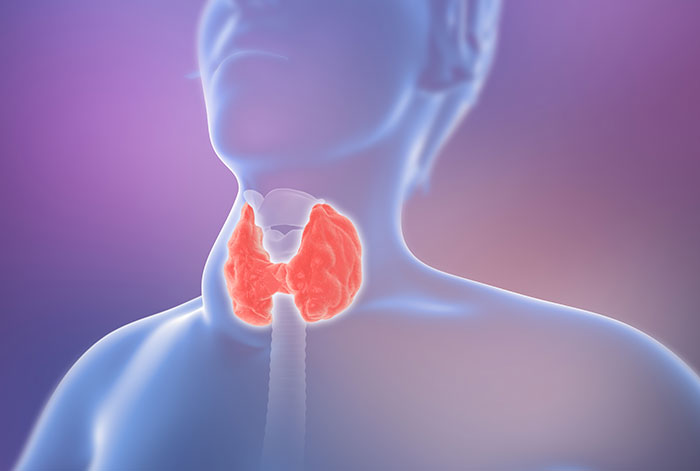The symptom list is nothing new; you’ll find the same list of ailments when self-diagnosing yourself on WebMD: fatigue, weight gain, pain, insomnia, depression, and cold intolerance. But did you know that earlier symptoms of a thyroid disorder can actually look like the complete opposite? This is known as Hashitoxicosis and occurs because most individuals with an underactive thyroid have an autoimmune condition called Hashimoto’s.
Inflammatory damage is usual suspect number one when it comes to underactive thyroid symptoms, but it may take a while for individuals to realize what’s happening to their bodies, which means the chance to take early action slips through their fingers.
Even when a patient is savvy enough to get help in the beginning stages of the disease progression, medical professionals often just attribute the symptoms to stress since all of the individual’s tests come back normal.

It may be a hard pill to swallow, but conventional doctors often miss the initial signs of a disease like this because they aren’t trained to identify and explore the subtle hypothyroid symptoms. What’s more, they definitely don’t use the most effective testing available.
A lot of my patients end up in my office because they’re finally paying attention to the subtle symptoms that haven’t gone away. In fact, the symptoms can no longer be ignored because they’ve become too serious to brush under the rug. Don’t fall into the same pattern.
I’ve gathered a list of three overlooked symptoms that may signal trouble in thyroid paradise, meaning that if you fit the criteria, it might be time to come in for a consultation.
1. You can’t shake that cold
Hashimoto’s is basically a case of mistaken identity. Your immune system thinks the thyroid cells are malicious invaders that need to be destroyed, so naturally, it launches an attack against them. Unfortunately, your immune system’s bouncers didn’t get the memo that your thyroid hormones were invited to the party, so this stage of the disease process can feel like a mild viral or bacterial infection. Take note, however, if this lasts for 1-5 months, as this is a major indicator that your thyroid needs some attention.
2. Sweating the Small Stuff
So the immune system has launched an attack on your thyroid. Now what? Well, the thyroid cells are killed, and in the process of dying, they release premade thyroid hormone into the bloodstream in noticeably heightened levels. The outpour of thyroid hormone drives your metabolism into overdrive, which means you’ll find yourself with high blood pressure, an increased heart rate, and a ton of unnecessary adrenaline pumping through your veins. These symptoms feel a lot like a panic attack or a serious case of anxiety, so this symptom is often diagnosed as such instead of a sign of Hashimoto’s.
3. An Unhealthy Appetite

If you find yourself ravenous throughout the day, you may be experiencing the excessive hunger and weight gain that often accompanies Hashimoto’s. However, strangely enough, Hashimoto’s usually begins with a loss of appetite. Your thyroid hormone has a lot of responsibility, and one of those major duties is to regulate your metabolism and hunger cues. When you have an underactive thyroid, you get Cookie Monster-hungry because your body is in search of more energy. On the other hand, individuals with an overactive thyroid-- as seen in Graves’ disease or thyroid storm--may lose their appetites, as their energy systems are upregulated.
No Time to Waste
Honestly, it’s easy enough to ignore a stubborn cold, a little bit of anxiety, and the need to snack or skip a meal. But remember, these seemingly “normal” symptoms can really be your body’s cry for help. You don’t want to sweep these symptoms under the rug like my many patients who have come to me only after they can no longer manage their symptoms.
Start early-- my team and I have the resources necessary to catch the subtle and initial signs of thyroid disorders.
We value the functional medicine approach, which seeks to utilize extensive and cutting-edge lab testing that can identify the source of your unique thyroid disorder. Once we do that, we can develop an individualized treatment plan designed specifically for your body. So don’t waste any more time; let’s beat this thing!